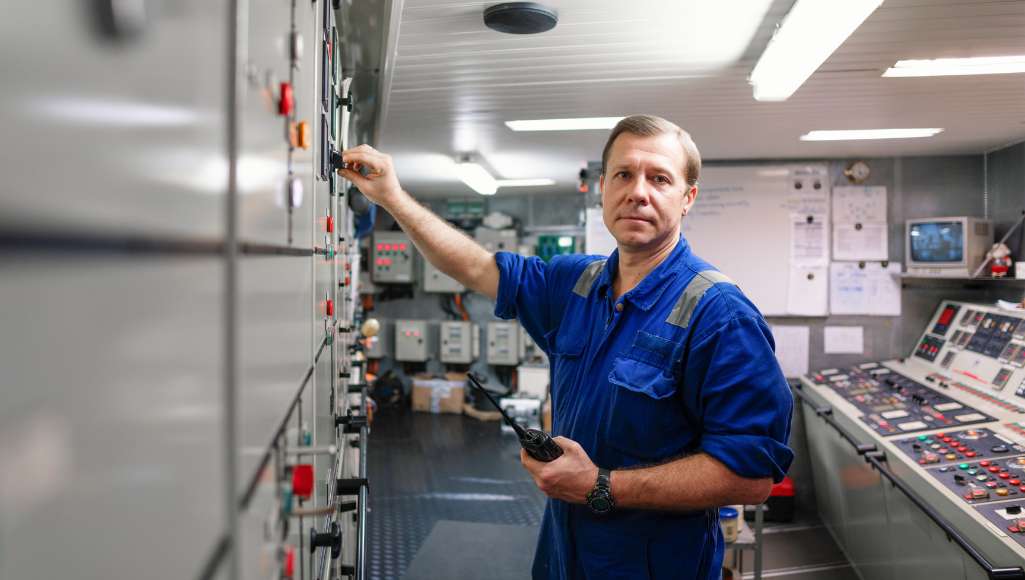
End the Stigma and Embrace Preventive Mental Health Care
It is time to end the stigma around mental health in the maritime industry.
According to Harvard Medical School research, half the world’s population will suffer from a mental health disorder in their lifetime. Mental health challenges are not unique. They happen to billions through no fault of their own, and addressing them should never be seen as a source of shame or a sign of weakness.
Moreover, mental health issues needn’t be chronic or debilitating to warrant serious attention. A healthier and more effective approach is to address concerns early, before they boil over into a crisis fueled by inaction.
In serving the health needs of thousands of global seafarers, VIKAND has developed a deep, evidence-based understanding about the importance of mental health to human sustainability at sea.
The conclusion we have come to is that the maritime industry needs to take mental health more seriously, and that mental health care should be part of every seafarer’s preventive wellness plan, no different than a yearly physical or routine blood work.
Barriers to Mental Health Care in the Maritime Industry
When it comes to mental and emotional health, the maritime industry has – to put it mildly – some baggage to unpack.
For centuries, seafaring has been a highly traditional, male-dominated world, shaping a culture where emotional awareness and vulnerability were neither valued nor accepted. Seafaring has long been hard work done by tough men, and this “stiff upper lip” mindset is still deeply ingrained.
“The stigma around discussing sensitive matters, like mental health, has created a culture where we avoid talking about well-being,” says Martin Hedman, Director of Mental Wellness Practices at VIKAND. “Especially in male-dominated industries like maritime work that focus on results and performance.”
This focus on performance is a significant barrier. Like the military, the needs of the individual seafarer can become subservient to the broader mission, driving a mentally unwell crew member to soldier on rather than compromise the crew’s performance goals, since asking for help could lead to a drop in productivity.
Operators themselves are largely to blame for this culture of suffering in silence. Even today, preventive mental healthcare still fails to attract investment from owners who struggle to see tangible returns.
“Ethical concerns, like taking care of people, have never been associated with performance,” says Hedman. “And it’s difficult for industries to focus on ethical aspects like well-being because they don’t see direct financial returns.”
Physical injuries, whether bleeding, broken or visible on an x-ray, are easily believed and understood, but emotional maladies, despite their very real personal and business consequences, are often minimised and disbelieved.
Results-focused companies are more comfortable reacting to visible crises rather than investing in comprehensive prevention tools, despite the fact that other industries have shown the economic benefits of proactively caring for employees, including improved productivity, retention and resilience.
It’s Time for a Major Paradigm Shift
Both the maritime industry and mental healthcare are at interesting turning points. With many seafarers caught in an unsustainable crisis of stress and burnout, ships are becoming understaffed and overworked, with high turnover and a shrinking labour pool.
The consequences of ignoring the human factor came into even sharper focus during the pandemic, when mental health problems reached a global crescendo.
Now, long-time seafarers are changing their attitude just as future seafarers enter the workforce with entirely different expectations. Younger workers are holding employers to higher standards, and many won’t tolerate abusive environments for any amount of money. Adapting to this generational shift demands a change in management strategy.
At the same time, our understanding of mental health is growing by leaps and bounds. As Martin Hedman explains, “Diagnoses like burnout or ADHD were only recognized in the last few decades, and we’re only just realising how mental health impacts performance.”
However, even with a growing awareness of how mental health affects business outcomes, it remains difficult to shift an entrenched industry focused on nonstop production and performance. Like redirecting a ship, this change will be slow and steady, fueled by honest conversations at every level, from the deck to the boardroom, about how mental health impacts human sustainability at sea.
Looking Forward to a Healthier Future
Mental health in maritime is a problem that needs attention today, and the solution starts at the top. If good mental and emotional health are treated as a worthy business investment, workers will take it more seriously, too. If companies signal to seafarers that seeking support is healthy and commendable, more of them will do it.
Maritime operators have the chance to set a new precedent – that preventive mental health care benefits everyone, from individual workers to the industry as a whole.
“We need to remove the stigma around mental health and show that talking about feelings isn’t a weakness, but a key to long-term sustainability and performance,” Hedman stresses. “Addressing issues early prevents bigger problems later.”
Preventive mental health care is as important as physical maintenance. Just as we keep an engine oiled rather than wait for it to seize up, replacing our current reactive approach to human wellness with proactive tools will be critical to the long-term health of the industry.
Visit VIKAND’s website now to learn more about our comprehensive mental health services, including preventive care.


